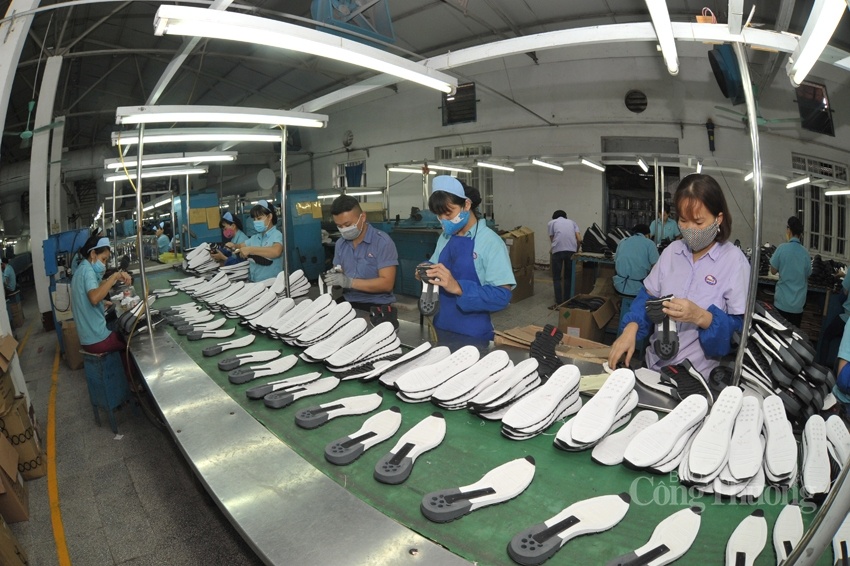68.1 per cent of textile and footwear businesses hit with fines for late delivery
 |
| 68.1 per cent of textile and footwear businesses are subject to fine for late delivery |
The data is provided by Do Quynh Chi, director of Research Center for Employment Relations (ERC) at the virtual webinar on textile and footwear businesses. The survey covers 256 textile and garment enterprises as well as 300 industry workers.
Due to the impact of the fourth wave of the COVID-19 pandemic, manufacturing hubs in the southern region fell into hibernation mode for 10 weeks. Therefore, 17 industrial parks in Ho Chi Minh City are only operating at 26.4 per cent of capacity. Meanwhile, the shortage of workers and the reduced capacity has seriously affected the progress of order delivery.
The survey reveals that 68.1 per cent of businesses were fined by brands for slow delivery. Meanwhile, 12.2 per cent of businesses have to pay compensation and suffer order cancellations. Around 21 per cent of businesses said that their orders are canceled by brands but they do not have to make compensation.
A number of foreign brands have cancelled contracts with Vietnamese suppliers and move orders to China or Indonesia. However, there are some brands agree to extend delivery schedule for businesses which can cover air freight costs up to hundreds of billions of dong.
Even so, some long-standing brands still appreciate Vietnam's advantages in terms of production speed, efficiency, labour quality, and geopolitical position. Thus, the brands are committed to long-term cooperation relationships with Vietnamese suppliers.
It is worth noting that orders for the new season of 2022 have been suspended or reduced in quantity. Large consumer markets for textiles and footwear products such as the US or the EU are recovering well and entering the year-end shopping season. And to keep up with the Christmas season as well as the new year of 2022, businesses think that they are forced to use air transportation at a very high cost.
However, what is more worrying for businesses of these two industries is the shortage of workers. Workers in the textile and footwear industry have been severely affected in terms of psychology, health, and economy during the pandemic. The survey shows that over 60 per cent of migrant workers want to return to their hometown or have already returned home, mainly for a short time to restore their health and life.
However, there is a favourable signal that 89 per cent of migrant workers and 96 per cent of local workers want to continue working at the current factory. Without active support measures, it will take 3-5 months for migrant workers to return to the textile and footwear factories.
What the stars mean:
★ Poor ★ ★ Promising ★★★ Good ★★★★ Very good ★★★★★ Exceptional
Related Contents
Latest News
More News
- EU and Vietnam elevate relations to a comprehensive strategic partnership (January 29, 2026 | 15:22)
- Vietnam to lead trade growth in ASEAN (January 29, 2026 | 15:08)
- Japanese business outlook in Vietnam turns more optimistic (January 28, 2026 | 09:54)
- Foreign leaders extend congratulations to Party General Secretary To Lam (January 25, 2026 | 10:01)
- 14th National Party Congress wraps up with success (January 25, 2026 | 09:49)
- Congratulations from VFF Central Committee's int’l partners to 14th National Party Congress (January 25, 2026 | 09:46)
- 14th Party Central Committee unanimously elects To Lam as General Secretary (January 23, 2026 | 16:22)
- Worldwide congratulations underscore confidence in Vietnam’s 14th Party Congress (January 23, 2026 | 09:02)
- Political parties, organisations, int’l friends send congratulations to 14th National Party Congress (January 22, 2026 | 09:33)
- Press release on second working day of 14th National Party Congress (January 22, 2026 | 09:19)

 Tag:
Tag:



















 Mobile Version
Mobile Version